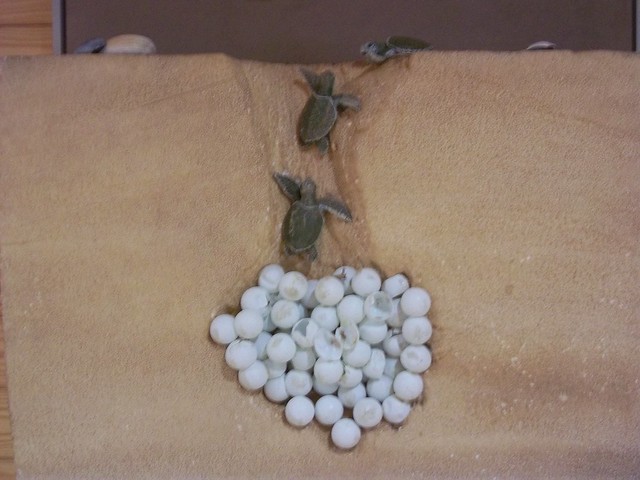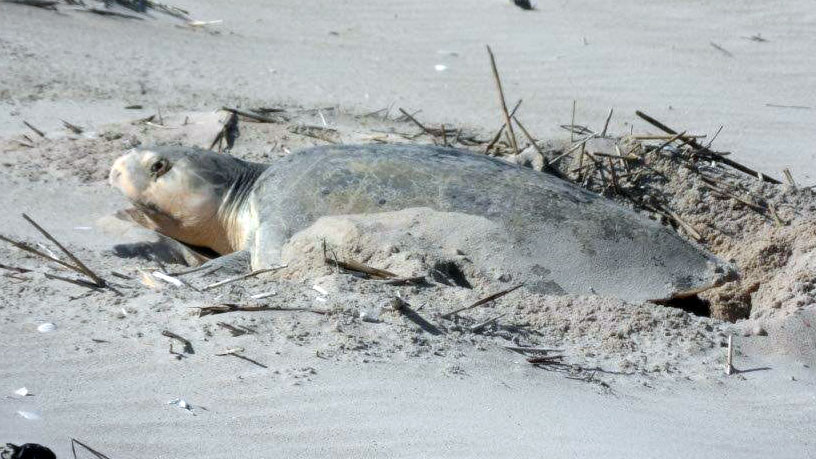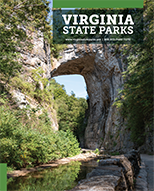Read Our Blogs
Rare Kemp's Ridley Sea Turtle Nest at False Cape
Walking along the beach with towering dunes, white capped waves, and a view that makes you understand the vast expanse of the Atlantic Ocean, you can get lost in thoughts of eons past. But...watch your step! Sea turtles have started their nesting season and you don't want to accidently crush the eggs buried in a nest.

This cross-section of a sea turtle nest is on display at False Cape's visitor center
Earlier this July, Abby Mills spotted a rare Kemp's Ridley Sea Turtle nesting along the shoreline at False Cape State Park. Three other types of turtles also nest in the area; Loggerheads, Leatherbacks, and Green Sea turtles. However, no other nests have been spotted in the park. Further research needs to be completed to determine why there are so few sea turtles nests this year.
Throughout the day, volunteer spotters look for signs of nests, nesting females, and also monitor nests that are close to hatching. Most nests are cordoned off with stakes and fencing, but watch your step and report any nesting turtles or nests to the False Cape State Park Rangers or Back Bay National Wildlife Refuge staff.

A rare Kemp's Ridley sea turtle is building her nest and laying eggs at False Cape
Since most sea turtles hatch during bright moonlight, volunteers "nest sit" throughout the night to monitor the nests, record hatching time, and count sea turtle hatchlings. The moonlight helps guide the hatchlings out to sea. However, Back Bay National Wildlife Refuge Biologist John Gallegos explained that the Kemp's Ridley is somewhat unusual in that the eggs can hatch both at night and during the day so they may post a "nest sitter" at that nest during the day as well as at night.
If you are interested in becoming a nest sitter, you will need to contact Geralyn Mireles, Assistant Biologist at Back Bay National Wildlife Refuge, at (757) 301-7329. Nest sitting is a serious commitment that requires attending seminars and training. The refuge and the park are also in need of volunteers to drive the Blue Goose Tram that takes visitors on tours through the refuge and into False Cape State Park.
Click here for info on the Refuge's volunteer programs.
Click here for info on Virginia State Parks volunteer programs.
If you have read the article and have a question, please email nancy.heltman@dcr.virginia.gov.














